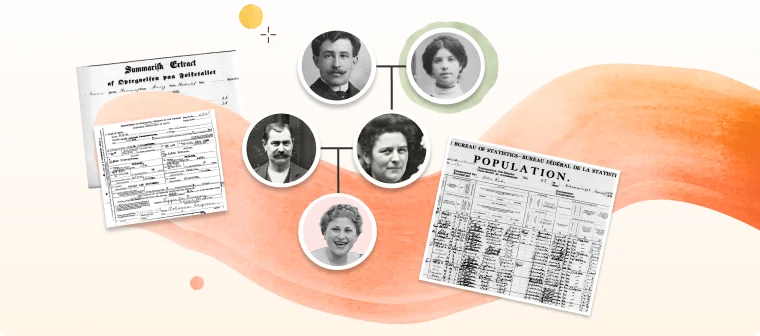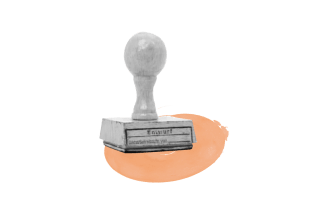Name Directory by Last Name: Last Names Starting with Qa
Explore millions of names to discover rich genealogical details and uncover your family's history
Enter a name to research
Last name meanings and origins
- Qavam
The surname Qavam has its roots in Persian culture, with historical origins tracing back to Iran. The name is derived from the Persian word "qavam," which translates to "stability" or "firmness," often associated with qualities of strength and resilience.
- Qadir
The surname Qadir has its roots in Arabic, derived from the word "qadir," which means "powerful" or "capable." Historically, it is associated with Islamic culture, particularly among communities in the Middle East and South Asia. The surname may have first appeared in the early Islamic period, as it was often adopted by families who held positions of authority or were known for their scholarly contributions.
- Qaddafi
The surname Qaddafi has its roots in Libya, particularly associated with the Berber and Arab populations of the region. The name is believed to derive from the Arabic word "Qaddaf," which means "to throw" or "to cast," and it may have originally been a nickname or occupational surname for someone involved in a specific trade or activity.
- Qasim
The surname Qasim has its roots in Arabic, derived from the verb "qasama," which means "to divide" or "to distribute." Historically, it is associated with the Islamic tradition, particularly as a name given to boys born into families that hoped for them to be generous or fair in their dealings. The name has been prevalent in various regions, particularly in the Middle East and South Asia, where it has been adopted by Muslim communities.
- Qazi
The surname Qazi has its historical roots in the Arabic word "qāḍī," which translates to "judge" or "magistrate." This title was historically significant in Islamic societies, where Qazis served as judicial authorities, interpreting and applying Islamic law. The surname likely emerged in regions where Islamic governance was established, particularly in the Middle East and South Asia, around the 7th century onwards.
- Qayyum
The surname Qayyum has its roots in Arabic, deriving from the word "Qayyum," which means "the Sustainer" or "the Eternal." Historically, it is associated with Islamic culture, particularly among those who are followers of the faith, as it reflects attributes of God in Islamic theology. The surname may have first appeared in the Middle East, particularly in regions where Arabic is spoken, and it has been used by various communities over the centuries.
- Qamar
The surname Qamar has its roots in Arabic, where it translates to "moon." Historically, it is believed to have originated in the Arabian Peninsula, with its earliest appearances linked to the Islamic Golden Age, a period marked by significant advancements in science, culture, and philosophy. The name Qamar may have been adopted by families or individuals who were associated with traits of brightness, beauty, or guidance, akin to the moon's symbolism in various cultures.
- Qajar
The surname Qajar has its historical roots in Persia, specifically linked to the Qajar dynasty that ruled Iran from the late 18th century until the early 20th century. The Qajars emerged from a Turkic tribe that settled in the region of present-day Iran, and the name itself is believed to derive from the Turkic word "qajar," which refers to a type of horse.
- Qadri
The surname Qadri has its roots in the Arabic language, deriving from the term "Qadr," which means "power" or "ability." Historically, it is associated with the Islamic tradition, particularly linked to the Qadri Sufi order founded by Abdul Qadir Gilani in the 12th century. This order emphasized spiritual development and the pursuit of knowledge, leading to the surname being adopted by many followers and their descendants.
- Qadeer Khan
The surname Qadeer Khan has its roots in South Asia, particularly within the context of the Urdu and Punjabi languages. The name "Qadeer" translates to "powerful" or "capable," derived from the Arabic word "Qadir," which carries similar meanings.
- Qay
The surname Qay has its historical roots primarily in the Middle East, particularly among communities in regions that have been influenced by Persian and Arabic cultures. The name is believed to derive from the Persian word "Qay," which can be associated with meanings related to "king" or "noble." Historically, individuals bearing this surname may have been linked to roles of leadership or governance, reflecting a social status that was significant in their communities.
- Qadeer
The surname Qadeer has its roots in Arabic, derived from the word "qadir," which means "powerful" or "capable." Historically, it is associated with the Islamic tradition, where names reflecting strength and capability were often favored. The surname likely emerged in regions where Arabic was spoken, particularly in the Middle East and South Asia, and it has been used by various communities, including Muslims, who may have adopted it as a way to signify personal or familial strength.
- Qayum
The surname Qayum has its roots in the Arabic language, deriving from the word "Qayyum," which means "the Sustainer" or "the Eternal." Historically, this surname is associated with Islamic culture, particularly among communities in South Asia, the Middle East, and parts of North Africa. The name likely emerged during the spread of Islam, as many surnames were adopted to reflect religious or spiritual significance.
- Qainn
The surname Qainn has its historical roots in the British Isles, particularly in Ireland, where it is believed to have originated as a variant of the Gaelic surname "Ó Cuain," meaning "descendant of Cuain." The name Cuain itself is derived from the word "cuan," which translates to "harbor" or "estuary," suggesting a connection to coastal or maritime occupations. Over time, the Qainn surname has been associated with various social roles, including fishermen and traders, reflecting the importance of waterways in the lives of those who bore the name.
- Qawi
The surname Qawi has its roots in Arabic, where it translates to "strong" or "powerful." Historically, it is believed to have emerged in the Arabian Peninsula, particularly among communities that valued strength and resilience, traits that were essential for survival in the harsh desert environment. Over time, the surname may have been adopted by individuals who were known for their physical prowess or leadership qualities, often associated with roles in tribal leadership, military positions, or as protectors of their communities.
- Qain
The surname Qain has its historical roots in the ancient Near East, with connections to the biblical figure Cain, who is often associated with agriculture and the founding of cities. The name is believed to derive from the Hebrew word "qanah," meaning "to acquire" or "to create," reflecting the traits of industriousness and creativity.
- Qadams
The surname Qadams has its roots in the Arabic-speaking world, where it is believed to derive from the Arabic word "qadam," meaning "foot" or "step." This suggests a possible historical connection to occupations or roles related to travel, movement, or perhaps even a metaphorical journey through life. The surname may have first appeared in the Middle East, particularly in regions where Arabic culture and language were predominant.
- Qasem
The surname Qasem has its roots in Arabic culture, deriving from the Arabic verb "qasama," which means "to divide" or "to share." Historically, the name has been associated with various regions in the Middle East, particularly in countries like Saudi Arabia, Iraq, and Jordan. The surname may have originally denoted a familial or tribal connection, often linked to individuals who were known for their roles in community leadership or governance.
- Qanbar
The surname Qanbar has its roots in Arabic culture, where it is derived from the given name "Qanbar," which means "a small, strong man" or "a warrior." Historically, the name has been associated with various regions in the Middle East, particularly in areas influenced by Islamic culture. The surname likely emerged during the early Islamic period, when names often reflected personal attributes or occupations.
- Qawasmeh
The surname Qawasmeh has its roots in the Arabic-speaking regions, particularly in the Levant, where it is believed to have originated among Palestinian families. The name is derived from the Arabic word "qawas," which translates to "archer" or "bowman," suggesting that the early bearers of the surname may have been associated with archery or military roles.
- Qark
The surname Qark has its roots in the historical and cultural tapestry of the Balkans, particularly in regions that are now part of Albania and surrounding areas. The name is believed to derive from the Albanian word "qark," which translates to "circle" or "district," suggesting a geographical or administrative significance.
- Qader
The surname Qader has its roots in the Arabic language, deriving from the word "qadir," which means "powerful" or "capable." Historically, it is believed to have first appeared in the Middle East, particularly in regions where Arabic is predominantly spoken. The surname may have been associated with individuals who held positions of authority or influence, reflecting traits of strength and capability.
- Qarase
The surname Qarase has its roots in the Pacific Islands, particularly in Fiji, where it is most commonly associated with the indigenous Fijian population. The name is believed to have originated from the Fijian language, with meanings that may relate to specific traits or roles within the community, such as leadership or connection to the land.
- Qainey
The surname Qainey has its historical roots primarily in England, where it is believed to have originated as a variant of the surname "Caine" or "Cayney." The name is thought to derive from the Old French personal name "Cayen," which itself may have roots in the Latin "Caius," meaning "rejoice." The earliest records of the surname date back to the medieval period, with its presence noted in various historical documents, including land grants and tax records. Over time, individuals bearing the surname Qainey were often associated with agricultural roles, reflecting the agrarian society of the time, and the name may have been linked to specific geographical features or localities, indicating a connection to the land. Culturally, the surname Qainey has seen variations in spelling and pronunciation, particularly as it spread across different regions and communities.
- Qassem
The surname Qassem has its roots in Arabic culture, deriving from the Arabic verb "qassama," which means "to divide" or "to share." Historically, the name has been associated with individuals who were known for their roles in distributing resources or managing communal affairs, particularly in agrarian societies where land and produce were shared among families or tribes. The surname is prevalent in various Middle Eastern countries, particularly in regions with significant Arab populations, and it has been documented since the medieval period.
- Qates
The surname Qates has its historical roots primarily in the Middle East, with origins that can be traced back to the Arabic-speaking regions. The name is believed to derive from the Arabic word "qāt," which means "to cut" or "to sever," possibly indicating a historical occupation related to butchery or the textile industry, where cutting was a significant skill.
- Qadhafi
The surname Qadhafi has its roots in Libya, particularly associated with the prominent figure Muammar Qadhafi, who ruled Libya from 1969 until his overthrow in 2011. The name itself is believed to derive from the Arabic word "Qadhaf," which means "to throw" or "to cast," and it is often linked to the region of Qadhafi's birth in the Sirte area.
- Qaiser
The surname Qaiser has its roots in the Arabic and Persian languages, deriving from the term "Qaysar," which means "emperor" or "ruler." Historically, it is associated with the title used for Roman emperors, reflecting a lineage of nobility and leadership. The name first appeared in the Middle East and South Asia, particularly among Muslim communities, where it was often adopted by families of significant social standing or military prowess.
- Qadar
The surname Qadar has its roots in the Arabic language, deriving from the word "qadar," which means "destiny" or "fate." Historically, it is believed to have first appeared in the Arabian Peninsula, where Arabic names often reflect significant cultural and religious concepts. The surname may have been associated with individuals who held roles in religious or scholarly contexts, as the concept of destiny is deeply intertwined with Islamic theology.
- Qalan
The surname Qalan has its roots in the Middle Eastern region, particularly among Arabic-speaking populations. Historically, it is believed to have emerged in the context of tribal affiliations or geographic identifiers, often linked to specific occupations or social roles within the community.
- Qazzaz
The surname Qazzaz has its roots in the Arabic language, where it is derived from the word "qazzaz," meaning "furrier" or "one who works with fur." Historically, this surname likely emerged in the Middle East, particularly in regions where trade in furs and textiles was prominent. The occupation of a furrier would have been significant in medieval societies, where clothing and textiles were essential for survival and status.
- Qaiyum
The surname Qaiyum has its roots in the Arabic language, deriving from the word "Qayyum," which means "the Sustainer" or "the Maintainer." Historically, it is associated with Islamic culture and is often linked to the concept of God as the sustainer of the universe. The surname likely emerged in regions where Arabic was spoken, particularly in the Middle East and North Africa, and it may have been adopted by families who held religious or scholarly roles within their communities.
- Qakes
The surname Qakes has its historical roots primarily in England, where it is believed to have originated as a variant of the surname "Quake," which is derived from the Old English word "cwacian," meaning "to shake" or "to tremble." This surname likely first appeared in the medieval period, with its earliest records tracing back to the 13th century. The name may have been associated with individuals who lived near a geographical feature that was prone to shaking, such as a riverbank or a hillside, or it could have been linked to a specific occupation, possibly related to the earth or agriculture.
- Qawl
The surname Qawl has its roots in the Arabic language, where it translates to "saying" or "statement." Historically, it is believed to have emerged in the Middle East, particularly among communities where Arabic was the predominant language. The surname may have been associated with individuals who were known for their eloquence, wisdom, or roles as scholars and teachers, reflecting a cultural reverence for knowledge and verbal expression.
- Qassemi
The surname Qassemi has its roots in the Arabic language, deriving from the word "qasim," which means "to divide" or "to distribute." Historically, it is believed to have first appeared in the Middle East, particularly in regions with significant Islamic influence, where it was often associated with individuals who held roles in trade or distribution of goods. The surname may also reflect a lineage connected to the Islamic prophet Muhammad, as "Qassemi" can denote a descendant of those who were involved in the distribution of wealth or resources, a role that was highly regarded in early Islamic society.
- Qassim
The surname Qassim has its roots in Arabic culture, deriving from the Arabic verb "qassama," which means "to divide" or "to share." Historically, the name has been associated with the Islamic tradition, particularly in the context of the Prophet Muhammad's family, as Qassim was the name of the Prophet's first son. The surname is prevalent in various regions of the Middle East, particularly in Saudi Arabia and other Gulf states, where it has been linked to families of notable lineage and social standing.
- Qadaffi
The surname Qadaffi has its roots in Libya, particularly associated with the prominent Qaddafi family, which rose to international prominence through Muammar Qaddafi, who ruled Libya from 1969 until his overthrow in 2011. The name itself is believed to derive from the Arabic word "Qaddafi," which can be interpreted as "the one who is strong" or "the one who is capable." Historically, the Qaddafi family was linked to the Bedouin tribes of the region, and their social roles often revolved around leadership and governance, particularly in the context of tribal and national politics.
- Qaddour
The surname Qaddour has its roots in Arabic culture, deriving from the Arabic word "Qaddur," which means "powerful" or "capable." Historically, the surname is believed to have emerged in the Middle East, particularly in regions where Arabic is predominantly spoken. The name may have been associated with individuals who held positions of authority or influence, reflecting traits of strength and capability.
- Qaddoura
The surname Qaddoura has its roots in the Arabic language, where it is derived from the word "qaddour," meaning "powerful" or "capable." Historically, the surname is believed to have originated in the Levant region, particularly in areas that are now part of modern-day Lebanon and Syria. The name may have been associated with individuals who held positions of authority or were known for their strength and capabilities, possibly linked to occupations such as leadership, military roles, or community organization.
- Qasba
The surname Qasba has its roots in the Arabic language, where it is derived from the word "qasbah," meaning "a fortified village" or "a small town." Historically, the name is believed to have originated in regions of North Africa and the Middle East, particularly in areas where such settlements were common. Over time, the surname may have been adopted by families living in or associated with these fortified towns, often linked to agricultural or trade activities.
Start your family tree for free
Start by entering a few names and MyHeritage will do the rest, so you can make meaningful discoveries

Explore historical records

Explore 1,810,427,080 census and voter list records to get a detailed snapshot of your ancestors' lives. Discover names, ages, occupations, family relationships, residences, and much more.

Explore 4,647,704,406 birth, marriage, and death records. Uncover valuable details about major family milestones and find names, dates, places, occupations, and residences of your ancestors and relatives.

Search 266,544,192 military records and discover the stories of courage and resilience in your family history. Military records include enlistment dates, ranks, locations, and even physical descriptions.
Embark on a fascinating journey to discover your family history

Start by adding a few names. Myheritage's automatic matching technology will help you expand your family tree and delight you with new discoveries.

Reveal your ethnic origins and find relatives you never knew existed with our simple DNA kit.

Dive into MyHeritage's international collection of 36.7 billion historical records - start with a name of an ancestor and see what our collections can reveal about your family history.
About MyHeritage

MyHeritage is the leading global platform for family history. It enriches the lives of people worldwide by enabling them to uncover more about themselves and where they belong. With a suite of intuitive products, billions of historical records, an affordable at-home DNA test, and AI-powered photo tools, MyHeritage creates a meaningful discovery experience that is deeply rewarding. The MyHeritage platform is enjoyed by tens of millions of people around the world who treasure and celebrate their heritage.








